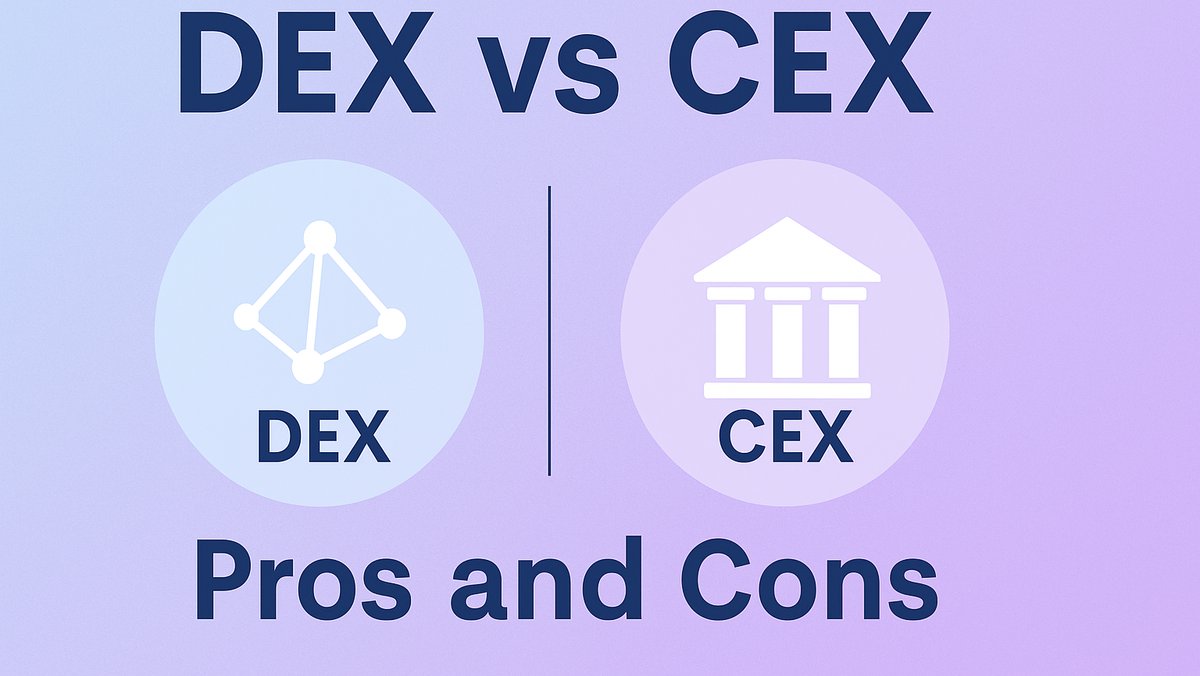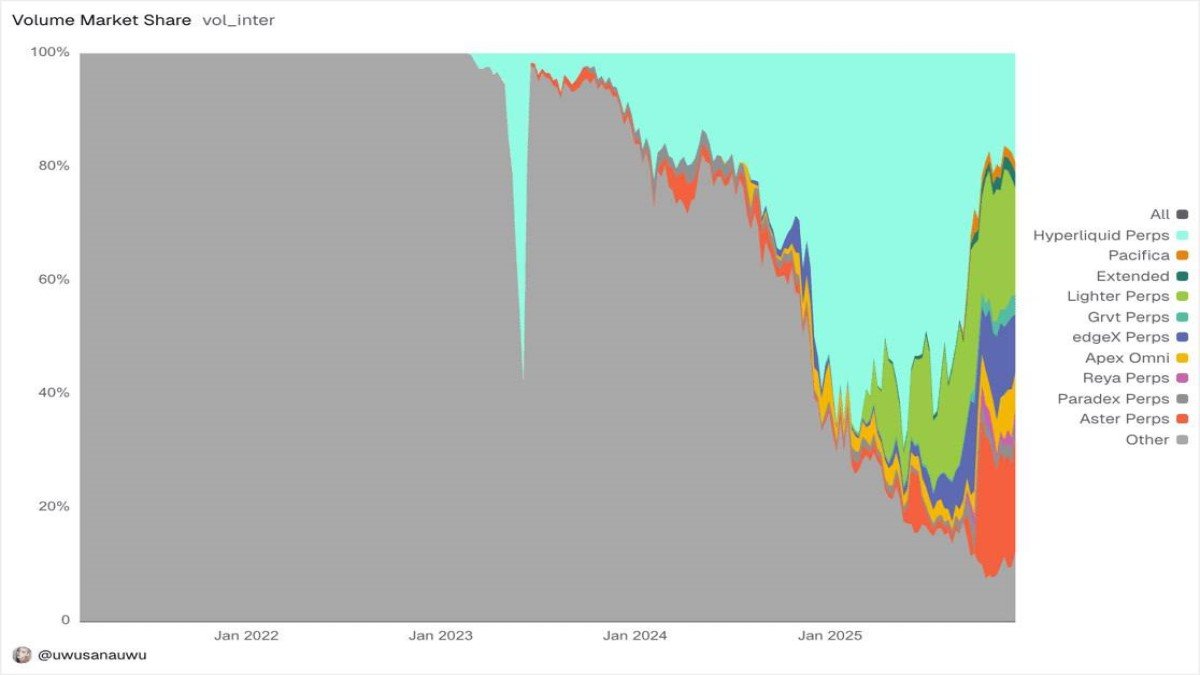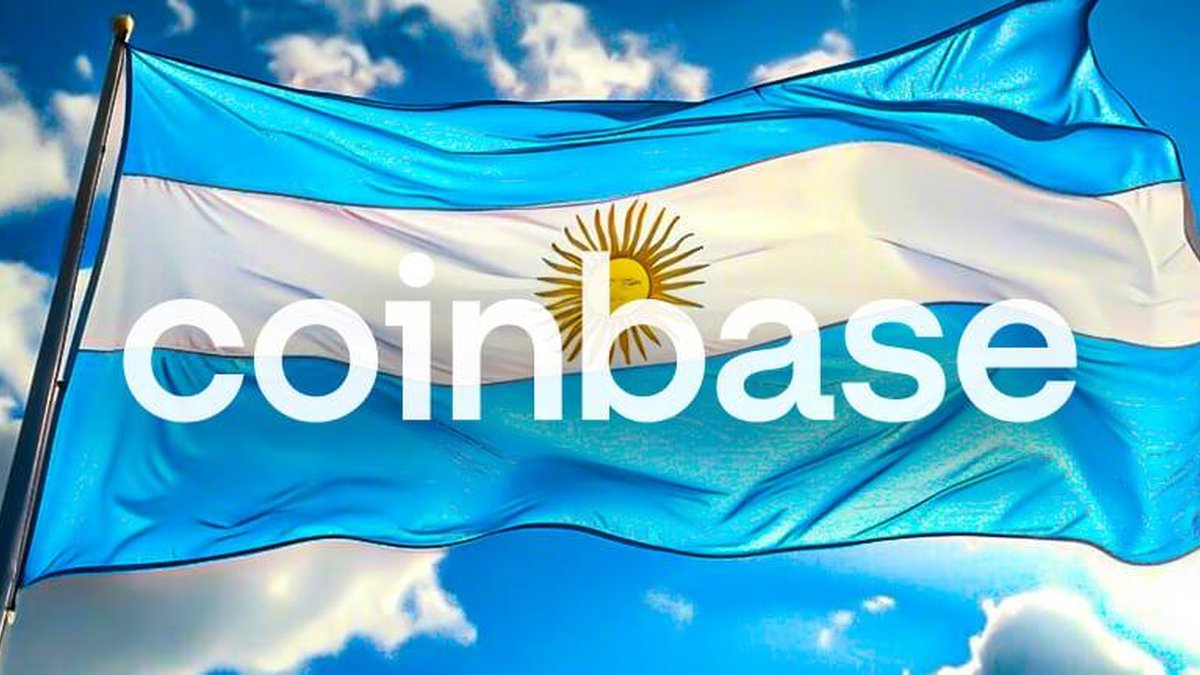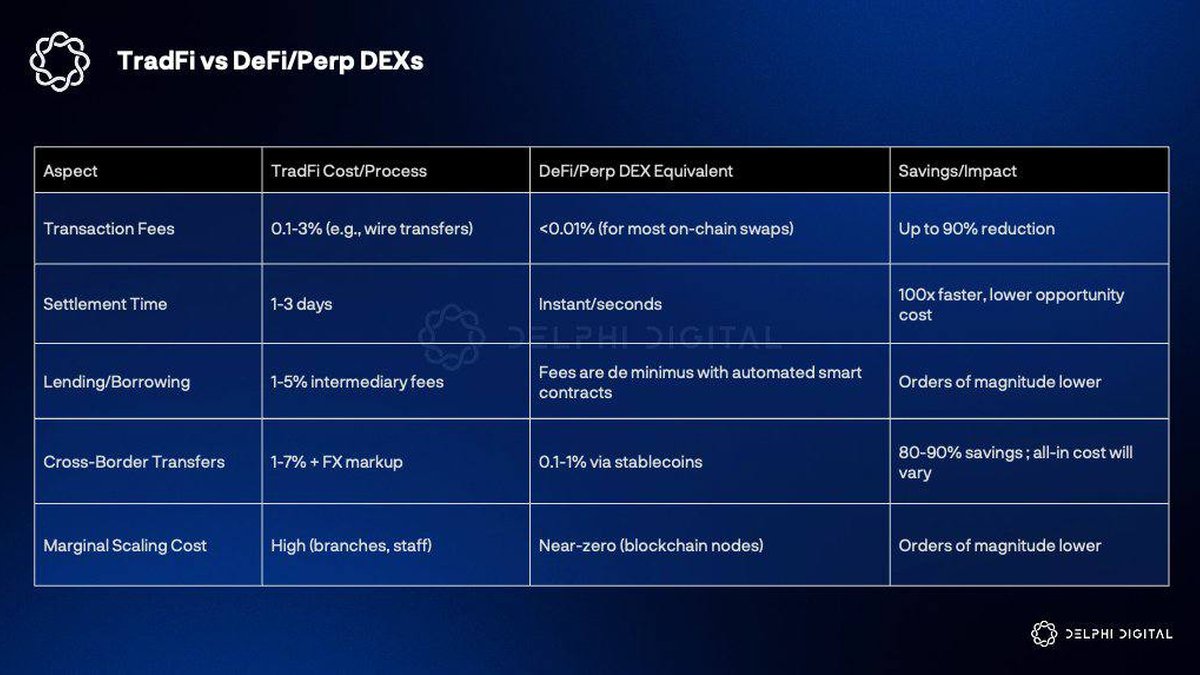DEX vs CEX: Pros and Cons (2025 Edition)
Choosing between decentralized exchanges (DEXs) and centralized exchanges (CEXs) is a trade-off across custody, liquidity, fees, and failure risk. This 2025 update adds hard numbers, recent security incidents, and a practical checklist.
At a Glance — 2025 Snapshot
| Metric | CEX (today) | DEX (today) | Why it matters | Sources |
|---|---|---|---|---|
| Spot market share | ~71% of spot volume | Record ~29% of spot volume (Jun 2025) | Depth and price discovery still concentrate on CEXs, but DEX share is the highest ever. | The Block (Jun 2025) |
| Top DEX concentration | — | Uniswap ~35.9% of DEX volume (Aug 2025) | Liquidity on DEXs is not uniform; leader effects matter for slippage. | CoinGecko (Sep 2025) |
| Order execution / fills | Central order books; internal matching; PoR for custody | UniswapX reports ~99.5% intent fill rate via RFQ/solvers | Execution quality on DEX is improving as RFQ/solvers compete. | Uniswap blog (2025) |
| Withdrawals / fees | Exchange withdrawal fees vary by asset | No withdrawals (self-custody); pay network gas for swaps/bridges | Total cost = platform fee + network fee (CEX) vs. gas + MEV risk (DEX). | Kraken fees • Coinbase help • Etherscan Gas |
| Security model | Custodial; PoR snapshots (e.g., Kraken Jun 30, 2025) | Non-custodial; smart-contract and front-end risk | Pick between counterparty risk (CEX) and contract/UX risk (DEX). | Kraken PoR • Binance PoR |
What Is a CEX?
Centralized exchanges custody funds and match orders on internal books. They offer KYC, fiat ramps, and support desks—useful for beginners and institutions.
What Is a DEX?
DEXs settle swaps by smart contracts from your wallet. You control keys and pay on-chain gas. Liquidity is pooled; pricing follows AMMs or on-chain order books.
Pros and Cons (Condensed)
CEX Pros
- Deepest spot/derivatives liquidity and tighter spreads.
- Fiat on/off ramps and customer support.
- Proof-of-Reserves programs improve transparency.
CEX Cons
- Custodial risk (mitigated, not eliminated by PoR).
- Jurisdictional limits and KYC/withdrawal rules.
DEX Pros
- Self-custody; permissionless access to new assets.
- Rapid innovation (RFQ/solvers, intents, L2 settlement).
DEX Cons
- Smart-contract and front-end risks; MEV exposure.
- Fragmented liquidity; slippage on long-tail pairs.
Security Reality Check — 2025 Case Studies
- CEX incident: Bybit suffered a reported ~$1.5B breach in May 2025, the largest single crypto security incident on record, per Chainalysis. Source, coverage.
- DEX incident: Cetus (Sui) lost ~$220M in May 2025 via an security vulnerability; part of a broader H1 spike in infra/front-end attacks tracked by TRM Labs/CertiK. Explainer, summary.
Macro view: stolen funds hit >$2.1B in H1 2025, led by infrastructure compromises (seed/private-key, front-end). TRM Labs, Reuters.
Costs and Failure Risks in Practice
- CEX withdrawals: Asset-based fee + network fee. Check your asset on the exchange fee page. Kraken • Coinbase.
- DEX swaps: Gas fluctuates by chain and time. Use an on-chain gas tracker before large trades. Etherscan.
- MEV/sandwich risk (DEX): RFQ/intents (e.g., UniswapX) can improve fill quality by routing to solvers and private order flow. UniswapX, Sandwich primer.
Which Should You Use?
Beginners: start with a reputable CEX for fiat ramps and support; withdraw to self-custody when ready. Active traders: blend both—CEX for deep books, DEX for long-tail assets and on-chain strategies. Privacy-conscious users: prefer DEX, but harden wallet hygiene.
Five-Step Checklist
- Custody: Decide what % stays on CEX vs. hardware wallet.
- Liquidity: Check pair depth/spread (CEX) or pool TVL/route (DEX).
- Fees: Sum trading + withdrawal + gas + bridge costs.
- Security: Verify CEX PoR recency; read DEX audits and approval scopes.
- Execution: For DEX, prefer RFQ/intents or private mempools for size.
Sources
• DEX vs CEX spot share: The Block
• Uniswap share: CoinGecko
• UniswapX fills: Uniswap
• CEX fees/help: Kraken, Coinbase
• Gas tracker: Etherscan
• PoR examples: Kraken, Binance
• Security reports: TRM Labs 2025, Chainalysis mid-year 2025, Reuters (2024 baseline)
• Case studies: Bybit security incident context, Cetus security vulnerability
Disclaimer: Informational only. Not investment advice. On-chain activity and fees change rapidly; verify links and costs before trading.







